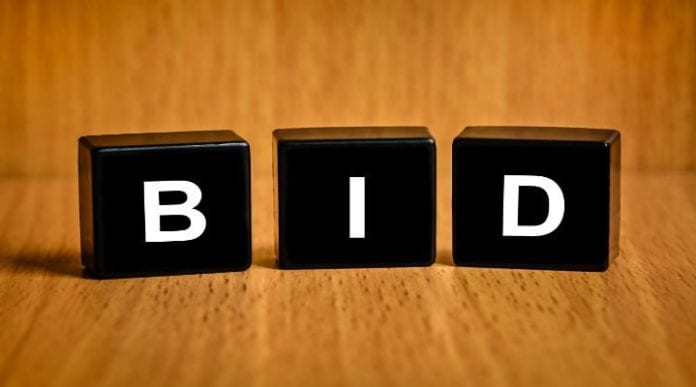The FCC is set to begin the final phase of its 600 MHz incentive auction process, with the assignment portion starting on March 6.
Winning bidders that picked up spectrum licenses in the Federal Communications Commission’s 600 MHz incentive auction process are now set to find out exactly where those licenses will be in the spectrum band.
The FCC said it would begin the assignment phase of the auction’s forward bidding process on March 6, which will have companies that won licenses covering the 428 partial economic areas bid again for where those 10-megahertz license blocks will fall within the up to 70 megahertz of spectrum in each PEA. Bidding in the assignment phase will be on top of the $19.6 billion already accumulated in winning bids from the auction’s forward bidding process, which ended on Feb. 10.
Bidding in the assignment phase is not mandatory, with bidders expected to come from companies that won multiple license blocks in a PEA looking to have those holdings grouped together to ease deployment and take advantage of wider spectrum blocks.
Walter Piecyk from BTIG is predicting the assignment phase to last through the end of March, with license winners expected to then be announced sometime in early April. Participants are set to remain under the auction’s anti-collusion rules, which prevent companies from discussing auction specifics, until two weeks after the winners are announced.
Qualified participants included Verizon Wireless, AT&T, T-Mobile US, U.S. Cellular and C Spire, as well as some international interest in the form of Japan’s NTT DoCoMo.
The end of the anti-collusion period could also mark the beginning of renewed merger talks between participants, with the most-cited being between T-Mobile US and Sprint. Recent reports suggested SoftBank and Sprint Chairman Masayoshi Son is said to have agreed to sell Sprint to DT’s T-Mobile US business, though would want to maintain a minority stake in the joint operations. SoftBank currently controls 83% of Sprint, while DT owns about 65% of T-Mobile US.
Auction proceeds top $19.6B, timing lines up with 5G plans
While total auction proceeds are still not yet final, the FCC noted the process generated the second highest amount from a spectrum auction, just beating out the $19.4 billion generated in the 700 MHz auction from 2008, but falling well short of the $44.1 billion in gross proceeds generated by the AWS-3 auction that ended in early 2015.
The FCC noted the 600 MHz incentive auction has generated more than $6 billion for the U.S. Treasury for deficit reduction; more than $10 billion of the proceeds will go to broadcasters that chose to relinquish spectrum usage rights; and up to $1.75 billion for other broadcasters that incur costs in changing channels.
Once completed, the FCC has set a 39-month timeline for television broadcasters to clear their operations from the 600 MHz spectrum band, which would put full spectrum availability into early 2020, or about the time most expect commercial “5G” services to be coming on air.
Initial 5G deployments are expected to focus on higher band spectrum licenses in the 3.5 GHz band as well as millimeter wave bands higher than the 15 GHz band. These bands are set to include broad swaths of spectrum support in order to meet the expected capacity needs of 5G services.
However, broader coverage will require lower spectrum bands. Most see 5G deployments relying heavily on current LTE deployments using low-band spectrum in order to meet coverage demands, with the 600 MHz spectrum able to bolster the supply.
Bored? Why not follow me on Twitter.

